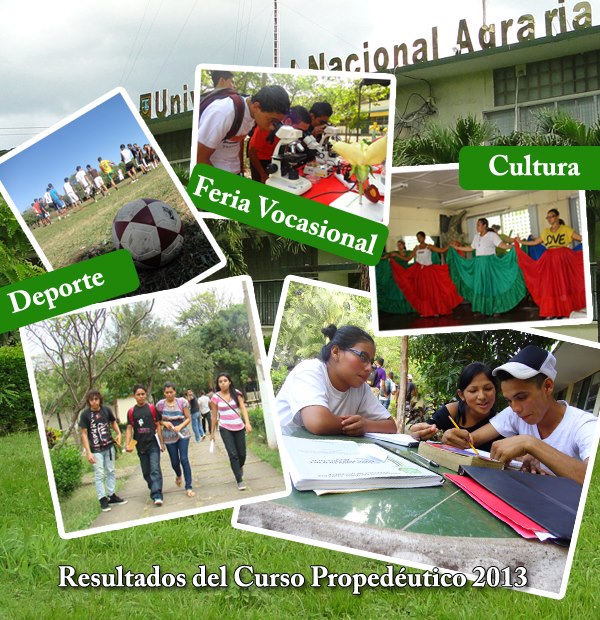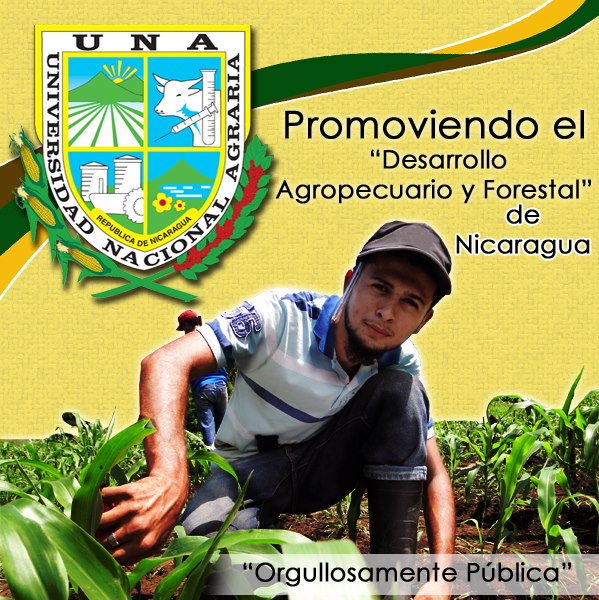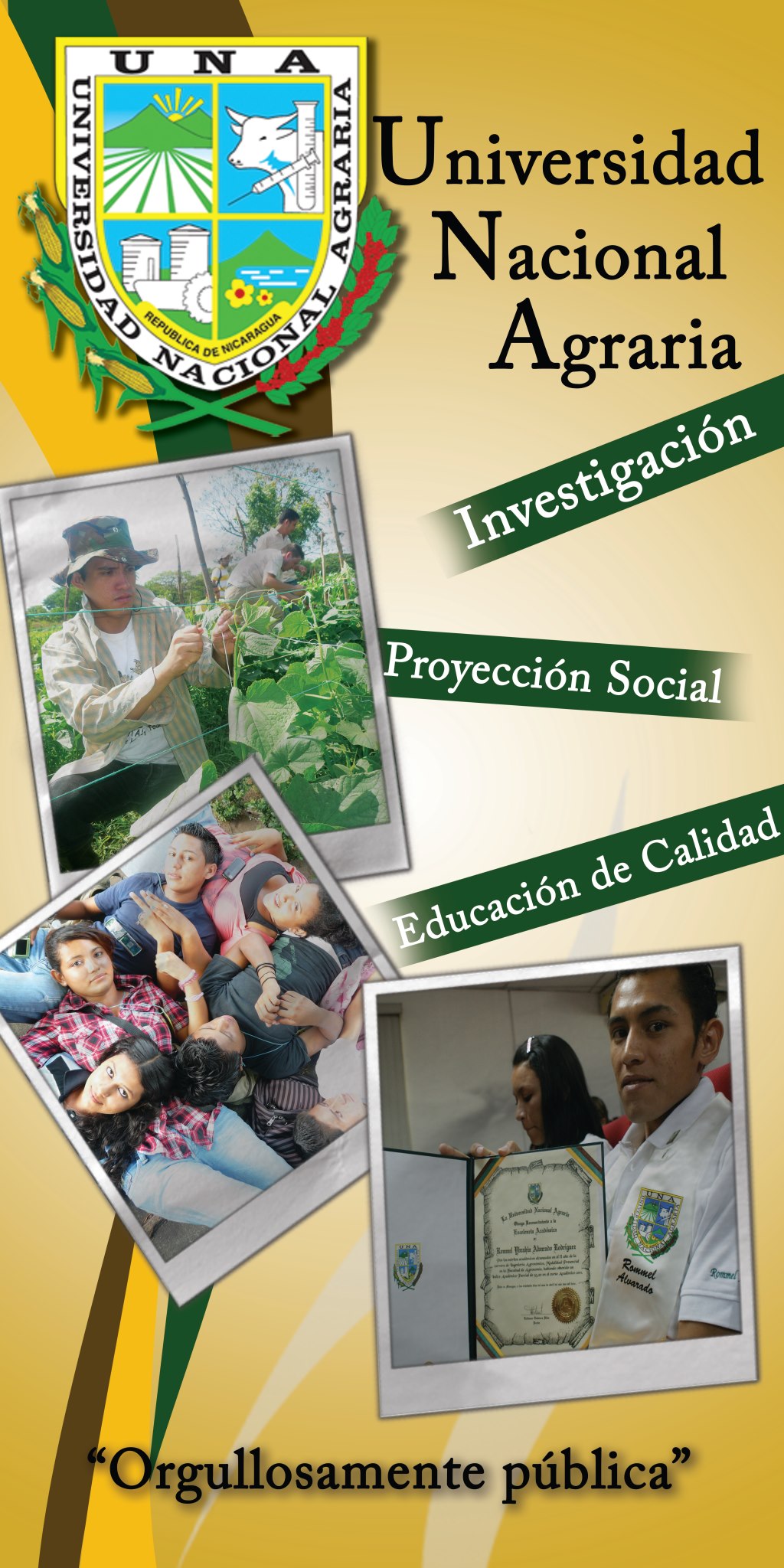NATIONAL AGRICULTURAL UNIVERSITY OF NICARAGUA
The National Agrarian University of Nicaragua (UNA) is the oldest institution of higher education in agriculture and the most experience in Nicaragua. It was created on May 25th, 1917 as the National School of Agriculture and evolved to be an autonomous public University by the law of Institutions of Higher Education, Title I, Chapter I, Article 4 (Law 89 Published in the Official Gazette No. 77 of 20 -IV -90 ), as established in the Constitution of the Republic of Nicaragua.

It is a public institution of higher education, independent, nonprofit, and contributes, from the perspective of social engagement university, to the integral and sustainable agricultural development and environmental conservation through training of competent professionals with ethical values, morals, and environmental culture; the construction of scientific and technological knowledge; and the production, management, and dissemination of information.
It has its main campus in Managua, in the department of the same name and three Regional Offices, one in Camoapa Municipality in Boaco Department, another in Juigalpa Municipality in Chontales Department, and most recently formed in Diriamba Municipality, Department of Carazo.

During its teaching experience it has worked toward a systematic transformation of the university, it has undertaken the mission to train professionals and develop research programs and agricultural extensions, responding to different models of economic development that the country has experienced.
The university community of the UNA, consists: 4,126 youth ( 74.45% male and 32.53% female, 91.2 % aged 15 to 24 years); 185 full-time teachers (64.32 % male and 35.68% female ); Ph.D teachers 14.05%, Masters 42.70 % , Specialists 2.7 %, Bachelor´s Degree 38.92%, and 1.62 % Technical degrees, most with over ten years of experience at the university. Also, working in the university are 350 non-teaching staff , of which 1.71 % are Masters , 0.57 % Specialist, 22% bachelor´s degree, 6.86 % Technical degrees, 22.715% with high school diplomas, and 41.14% with primary school studies .

